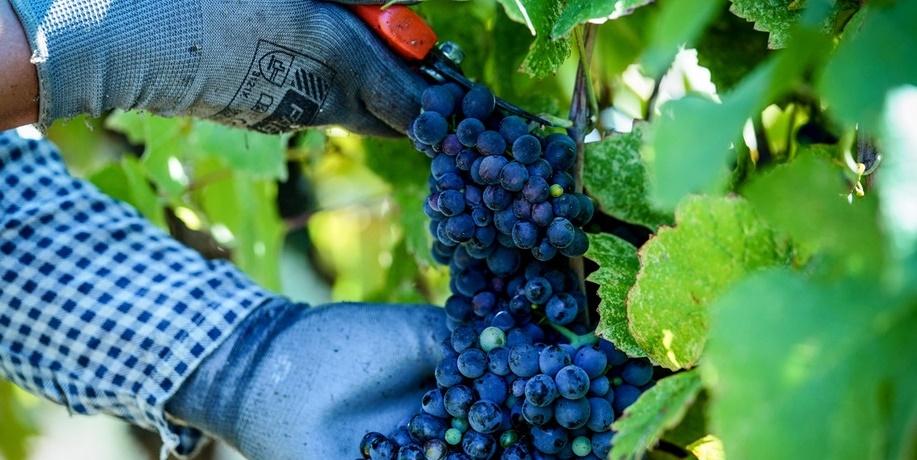
Drought and heat also have an impact on the wine harvest. And with olives there are drastic harvest slumps.
It is one of the Italian export hits, but this year it is also one of Italy’s big problem children: the Chianti. Sergio Zingarelli is also concerned. He is Vice President of the Chianti Classico Consortium. His winery is located in the middle of the Tuscan picture book landscape near the town of Castellina. “The grapes are smaller and we assume that there will be less overall than the average in recent years. Now we have to wait for rain, because without rain they won’t be ready for harvest,” says Zingarelli.
Hardly any rain, high temperatures
In fact, there has always been enough water in the Tuscan hills. In recent years, however, the dry periods have become longer and longer. It hasn’t really rained here for months this summer, and the temperatures are consistently high, sometimes exceeding 40 degrees. The fact that the grapes are smaller this year is not the only problem: “We assume that we will have to harvest ten days earlier than in previous seasons because the grapes are ripe earlier,” says Zingarelli.
In addition, every day that the winegrowers wait longer to harvest, the risk of storms destroying parts of the grapes increases. Just a few kilometers away, a hailstorm recently destroyed 40 percent of the grape harvest at one of his colleagues.
There is a risk of a decline in wine and olive oil production
According to the Coldiretti agricultural association, overall wine production in Italy could fall by around ten percent.
But the extreme weather is not only a problem for the winegrowers, the olive growers are also complaining. Filippo Legnaioli, an olive grower from San Casciano in Val di Pesa says:
“Unfortunately, the climate had a decisive influence. We had a very dry spring with practically no rainfall from March until today, and that during the crucial phase in the transition from flowering to fruiting. The flowering was excellent, but unfortunately the lack of water has hampered the development of olives.”
If the drought persists or there are major storms before harvest, olive oil production could fall by 30 percent this year.
Extreme weather affects agriculture
The extreme weather affects almost every area of agriculture: the production of maize and animal feed has even collapsed by 45 percent, that of durum wheat for pasta by 30 percent, and milk production by 20 percent. The Coldiretti agricultural association estimates the damage to date at a total of around three billion euros.
State of emergency in Italy! Worst drought in 70 years
Drought in Belgium: 12 municipalities to impose water restrictions
Worst drought in 1200 years in Spain and Portugal




